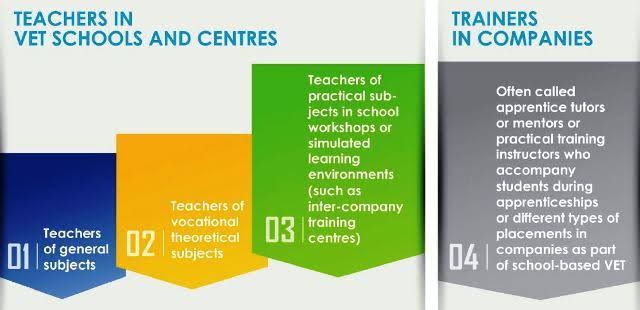The main objective of professional development for teachers is an improvement. Some areas they endeavor to improve are the instructional strategies, learner outcomes, and the teaching process. However, if the professional development process is not well thought out, it ends up being a waste of time.
There are many opportunities for 21st-century teachers as long as they update their skills. Technological innovations have led to the emergence of online teaching jobs on platforms, such as Preply, which have changed the teaching landscape. In this sense, teachers have to become tech-savvy to be able to handle online tutoring jobs.
But, if a teacher does not plan their development carefully, they will fail. Here are some of the reasons why many teacher professional development programs usually fail:
- They focus on numerous goals, which are sometimes conflicting.
- Some of the programs are not relevant to teacher development.
- The programs are delivered ineffectively.
- The programs also don’t focus on feedback and ongoing support.
- Some of the programs have improbable expectations.
In this regard, there is a need for stakeholders to develop effective teacher professional development programs. The next section looks at how to develop a professional teacher development pathway.
Effective Teacher Development
As mentioned earlier, effective teacher development is practicable. Here is a working strategy:
Set Goals
The same way you plan for your lessons, start with your target outcome. As yourself questions such as – what challenges at your school do you want to resolve? What student learning outcomes need to be improved?
In other words, teachers should provide their input during the goal-setting phase of the process. This will ensure that the teacher professional development program is relevant to the target audience: the teachers.
Streamline
Eventually, you will have to select one or two that the program will focus on each school year. Studies have revealed that brief, one-off workshops are not effective. As a matter of fact, teachers need up to 50 hours of training, coaching, and practicals to master and execute a new instructional approach.
In this regard, for a teacher professional development program to be effective, it needs to be continual. For a teacher to apply a new strategy effectively, they need time. For example, if teachers want to work on online tutor jobs, they must upgrade their ICT skills. However, ICT integration in teaching and learning is not something you learn overnight. There is a need for continual training and support to ensure they master the skills.
It Should Be Hands-On
Studies have shown that lectures are not effective in the classroom. Moreover, they are not effective for teacher professional development.
Therefore, an effective teacher professional development program should provide hands-on opportunities. This will enable the teachers to practice new strategies during the professional development sessions. It is inevitable that teachers are given a chance to learn by doing.
It Should Encourage Collaboration
Collaboration makes the learning process active. Therefore, the program should break teachers into small groups where they discuss what they are learning and how they can apply it in their classrooms.
Where possible, you can group teachers according to their subject area. Studies have revealed that professional development is delivered effectively in the context of a teacher’s subject areas. This is because teachers don’t find information on broad topics beneficial.
On the other hand, they can benefit from analyzing how the new skill applies to their content. The subject-based approach is usually received well by teachers. Moreover, it has been confirmed that it enhances teacher practice and student learning.
Develop Something Practical
An effective teacher professional development program is one that teachers can practice immediately in their classrooms. While instant success is not likely, immediate practice is fundamental.
At the professional development sessions, teachers should be guided to create related activities, and lesson plans that they can implement immediately.
Provide Coaching and Mentoring
Although teachers might like and understand a new strategy, its implementation might be challenging for them. Therefore, the program should support teachers when they start implementing the new strategy.
For example, you can visit the classrooms and provide non-evaluative feedback on the area of focus. But, if you cannot provide feedback or it is not your area of expertise, consider involving instructional coaches or master teachers.
On the other hand, teachers who pick up the new strategy quickly can mentor other teachers. Additionally, you can create opportunities for teachers to attend model classrooms and see the new strategies in action.
So, if you want to integrate ICT into your school’s teaching and learning process, have the teachers visit classes facilitated by other teachers doing teaching jobs online.
Revisit the Goals
Reference your teacher’s professional development goals regularly. Additionally, the program should provide teachers with strategies to monitor their progress towards the set goals. They can use parameters such as student data and teacher evaluations to check whether the new strategy has any effect on student achievement. A teacher working on a tutor job online will find it easier to gather this data. The online learning platforms have features that help with data collection and evaluation.


